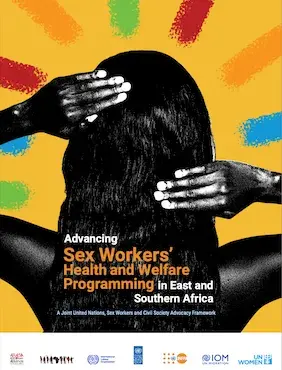There is a global consensus to ending inequalities, if ending AIDS as a public health threat is to be achieved by 2030. Both the Global AIDS Strategy 2021–2026 and the 2021 Political Declaration on HIV and AIDS: Ending Inequalities and Getting on Track to End AIDS by 2030 emphasize the urgency of tackling inequalities as a pathway to ending AIDS. There is also increasing evidence that marginalized populations tend to suffer most when confronted with emergencies and humanitarian situations.
Sex workers are among the most marginalized and underserved groups. The recent COVID-19 pandemic in East and Southern Africa amplified the challenges faced by sex workers and the need to address structural barriers to accessing services. Sex workers also remain the most at-risk population with HIV in the region. Reversing this situation will require a united front of partners.
In 2021, UNFPA and the African Sex Workers Alliance (ASWA), in collaboration with United Nations agencies, civil society organizations and development partners, convened a virtual regional consultation meeting to reflect on the challenges faced by sex workers. Several recommendations emerged, among them the need to develop a regional advocacy framework for strengthening sex work programming. The recommendations centred around three themes – livelihood and social protection, human rights, and access to health services.
This framework seeks to guide the region to execute a more coordinated and inclusive response to the many challenges faced by sex workers in the region. It will also contribute to the acceleration of the HIV response and assist the region in meeting the 2025 HIV targets and ultimately ending AIDS as a public health threat by 2030.


